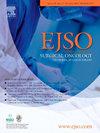Clinical contexts for Shared Decision-Making in rectal cancer: Organ preservation, sphincter-sparing surgery and tailored stoma policy
IF 2.9
2区 医学
Q2 ONCOLOGY
引用次数: 0
Abstract
The management of rectal cancer has evolved into a patient-centered multidisciplinary approach emphasizing oncological safety, quality of life (QoL), and functional outcomes. Shared Decision-Making (SDM) plays a pivotal role in navigating treatment strategies that balance these aspects. Rather than reviewing existing SDM interventions, this narrative review explores clinical situations where SDM could significantly support the decision-making process.
We focus on three critical therapeutic domains: organ preservation, sphincter preservation and temporary stoma policies, where treatment decisions involve significant trade-offs and patients’ preferences. Emerging strategies like the “watch-and-wait" approach and local excision in carefully selected patients have shown potential in preserving the rectum without compromising oncological outcomes. Sphincter-preserving techniques, including intersphincteric resection, offer alternatives to permanent stomas, though they require careful consideration of potential functional impacts such as Low Anterior Resection Syndrome (LARS). Regarding temporary stomas, innovations in closure timing and tailored risk stratification methods aim to reduce stoma-related complications and improve patient QoL.
This review examines the different therapeutic options, highlighting decision points where SDM can support individualized care and facilitate personalized treatment planning. By integrating SDM into these clinical pathways, healthcare teams and patients can collaboratively align treatment recommendations with patients’ preferences, ultimately improving outcomes and patient satisfaction.
直肠癌共同决策的临床背景:器官保存、保留括约肌手术和量身定制的造口策略
直肠癌的管理已经发展成为以患者为中心的多学科方法,强调肿瘤安全,生活质量(QoL)和功能结果。共同决策(SDM)在平衡这些方面的治疗策略中起着关键作用。本文不是回顾现有的SDM干预措施,而是探讨SDM可以显著支持决策过程的临床情况。我们专注于三个关键的治疗领域:器官保存,括约肌保存和临时造口政策,其中治疗决策涉及重大权衡和患者的偏好。新兴的策略,如“观察等待”方法和对精心挑选的患者进行局部切除,显示出在不影响肿瘤结果的情况下保留直肠的潜力。保留括约肌的技术,包括括约肌间切除术,提供了永久性造口的替代方案,尽管它们需要仔细考虑潜在的功能影响,如前低位切除综合征(LARS)。对于临时造口,在关闭时间和量身定制的风险分层方法方面的创新旨在减少造口相关并发症,提高患者的生活质量。本综述探讨了不同的治疗方案,强调了SDM可以支持个性化护理和促进个性化治疗计划的决策点。通过将SDM集成到这些临床路径中,医疗团队和患者可以协同调整治疗建议,使其符合患者的偏好,最终改善结果和患者满意度。
本文章由计算机程序翻译,如有差异,请以英文原文为准。
求助全文
约1分钟内获得全文
求助全文
来源期刊

Ejso
医学-外科
CiteScore
6.40
自引率
2.60%
发文量
1148
审稿时长
41 days
期刊介绍:
JSO - European Journal of Surgical Oncology ("the Journal of Cancer Surgery") is the Official Journal of the European Society of Surgical Oncology and BASO ~ the Association for Cancer Surgery.
The EJSO aims to advance surgical oncology research and practice through the publication of original research articles, review articles, editorials, debates and correspondence.
 求助内容:
求助内容: 应助结果提醒方式:
应助结果提醒方式:


